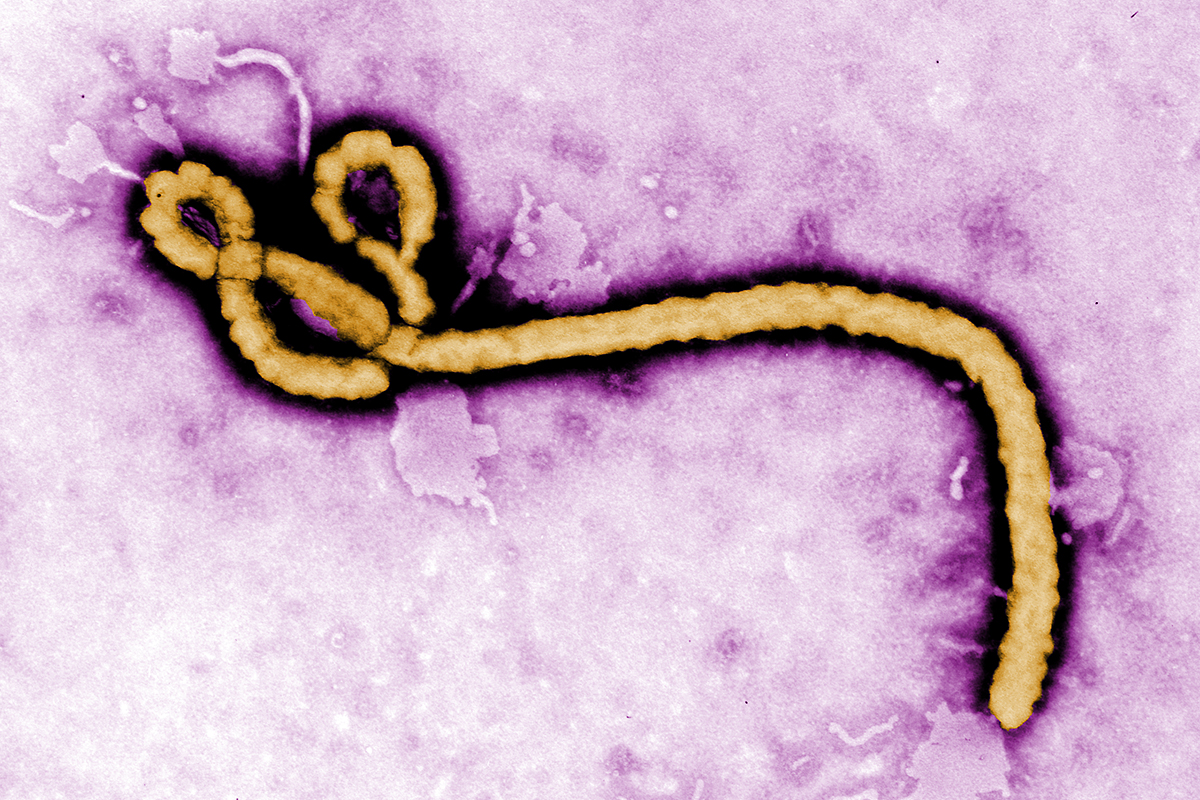UIC researchers seek keys to prevent Ebola infection
“There’s a quote I like to use in relation to this Ebola outbreak: ‘The only thing we have to fear is fear itself’,” says Lijun Rong, associate professor of microbiology and immunology.
“The thing that makes Ebola scary is that it’s an unknown — we don’t know what it’s going to do or where it will show up next.”
Rong has been following the outbreak in West Africa closely, and news coverage of the Americans who seemed to respond positively to an experimental treatment for Ebola makes him uneasy.
“These two people may have been already on their way to getting better when they got the treatment, which was nine days after they started developing symptoms,” Rong says. “It is too early to know if this treatment is effective with just two cases.”
Rong and his colleagues at UIC are working on identifying small drug molecules that can prevent some of the most dangerous viruses — including Ebola, Marburg and MERS — from infecting cells. They use a high-throughput screening facility to screen and identify drugs and agents for their virus-blocking potential.

“The thing that makes Ebola scary is that it’s an unknown,” says microbiologist Lijun Rong. Photo: Jenny Fontaine/UIC
So far, they have identified a few lead molecules that show promise against Ebola. Mice given one of these compounds had an 80 percent survival rate when exposed to the Ebola virus in the lab, compared to zero percent for the mice that didn’t get the compound.
Since experiments that use infectious Ebola virus require a level 4 biohazard facility, this phase of Rong’s research is conducted at the U.S. Army Medical Research Institute of Infectious Diseases in Frederick, Maryland.
For the drug screening, conducted in campus labs, Rong uses hybrid viruses made up of a virus with low potential for infecting humans that carries the Ebola glycoprotein that lets it bind to human cells — the first step in infection.
“We are looking for small molecules that interfere with the Ebola glycoprotein in some way and prevent it from binding to host cells,” Rong says.
While he is not as concerned about Ebola as he is about the flu virus, which kills hundreds of thousands of people each year, Rong believes that developing treatments for emerging viruses is important work.
“We need to prepare for new viruses to not only save lives, but to reduce some of the uncertainty and fear that they cause.”

